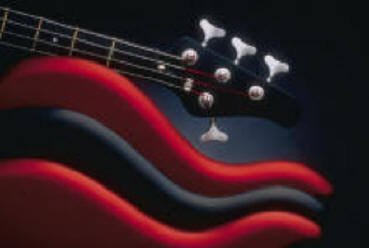Lecture: Gospel, Soul, and Motown 
GOSPEL Thomas A. Dorsey (1899-1993) The Father of Gospel Music
watch | 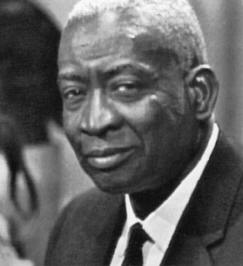
|
Personal tragedy led Dorsey to leave secular music behind and began writing and recording what he called “gospel” music. He was the first to use that term. His first wife, Nettie died in childbirth in 1932 along with his first son. In his grief, he wrote his most famous song, one of the most famous of all gospel songs, “Take My Hand, Precious Lord” listen SOUL Your text describes it well: Blues and Gospel are the parents of Soul It is also described as a new gospel-based form of black rock 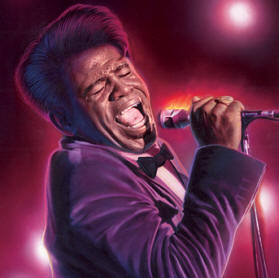
| James Brown (1933-2006) "The Hardest Working Man in Show Business" (Athletic dancing and full energy stage show) The Godfather of Soul
watch notice the 12-bar blues form in the song he sings "I Got You" (1965) listen |
We have a tendency to pidgeonhole musical styles for the purposes of description or association. Here's a great example of what could happen if we could just get over ourselves!! These 2 Great Musicians both passed away recently (Brown 2006, Pavarotti 2007) James Brown and Luciano Pavarotti watch |  |
Aretha Franklin (1942- ) The Queen of Soul The first woman inducted into the Rock and Roll Hall of Fame
"I Never Loved a Man" (1967) watch "R-E-S-P-E-C-T" (1967) listen This was written and originally recorded by Otis Redding | 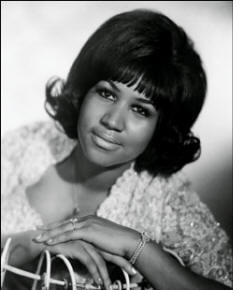
|
Her father was a well known minister (Rev. C.L. Franklin) so Aretha grew up with gospel music. 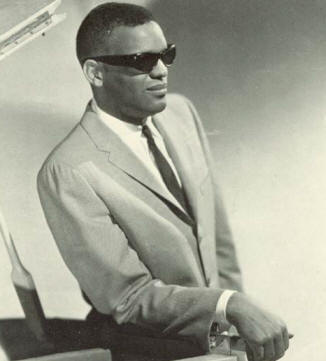
| Ray Charles (1930- 2004) "Georgia on my Mind" (1960) watch (became the official state song of Georgia) "I've Got a Woman" (1954) listen Check the gospel roots of this song "It Must Be Jesus" listen |

Stax Records In Memphis, blues and country mixed into rockabilly and then morphed into soul for a unique sound that came to be known as the Stax style. watch They used horns which gave them a different sound 
The studio band at Stax was Booker T. and the M.G.s They had instrumental hits on their own, like "Green Onions" 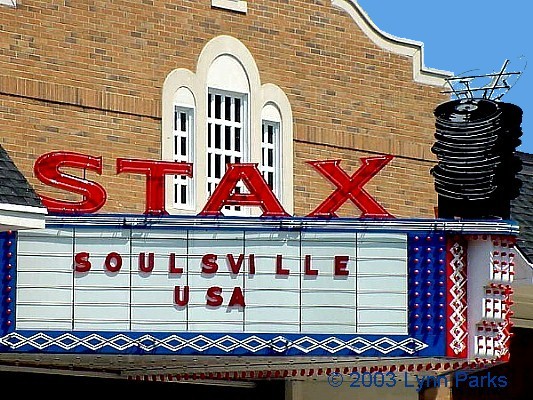
Jim Stewart and his sister, Estelle Axton went into business together in 1960; hence, the name! 
Booker T. & the MGs "Green Onions" (1962) They were the studio band at Stax Wilson Pickett "In the Midnight Hour" (1965) listen Otis Redding "Sitting on the Dock of the Bay" (1968) listen Eddie Floyd Sam and Dave "Soul Man" (1967) listen The Mar-Keys Isaac Hayes "Shaft" listen 
Motown Records
Meanwhile, in Detroit, (Motor City, U.S.A.)
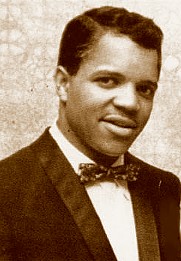
| Berry Gordy, Jr. (1929 - ) Founded Motown Records in 1959
|
His production style was formulaic: Find the winning combination of songwriters, style and performers, and crank out the hits! 
He exercised control over his artists even to hiring someone to teach them social etiquette and choreography. Berry Gordy bought a house in Detroit and converted the downstairs into a record company and the basement into a recording studio. He named it Hitsville, USA 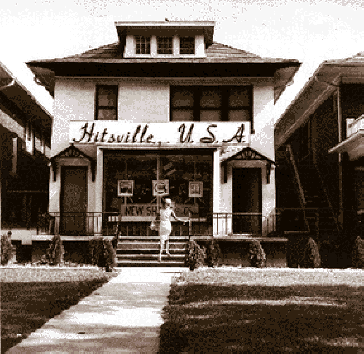
the "Motown Sound" was very successful and Motown Records became a powerhouse! 
The height of Motown coincided with the popular era of the Beatles. Here is a Timeline that shows the Motown story (Be patient with loading) There is also a movie called Standing in the Shadows of Motown (2002) that you might find interesting! 
The Marvelettes "Mr. Postman" (1959) The Vandellas "Dancin' in the Streets" (1964) The Four Tops "Baby I Need Your Loving" (1964) The Supremes "Come See About Me" (1964) listen The Supremes had 5 consecutive #1 hits at the height of Beatlemania! Smokey Robinson and the Miracles "You've Really God a Hold on Me" (1962) Marvin Gaye "I Heard It Through the Grapevine" (1967) listen Gladys Knight and the Pips Midnight Train to Georgia (1973) The Temptations "My Girl" (1965) listen Stevie Wonder "Signed, Sealed, Delivered" (1970) listen The Jackson Five "I Want You Back" (1969) watch What a talent Michael was . . and so early! 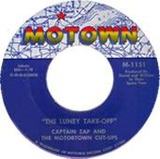
Race issues in popular music are often considered in terms of black and white. When discussing Motown and Stax, there was black and blacker. However, Motown was "black-owned" and Stax was "white-owned." Almost everyone at Motown was black. At Stax, there was much more integration, but the sound was less 'produced' and some might say more authentic. Some considered that Motown had "sold out" to appeal to white audiences and that the black artists were not performing authentically. What do you think? What was the "Motown Sound"? Here is a great link for an overview of this phenomenal music factory: The Motown Story 

Created and maintained by Vicky V. Johnson | 